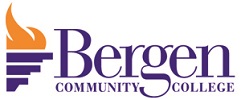
Bergen Community College’s main campus in Paramus.
PARAMUS, N.J. – In its latest initiative to remove barriers for students seeking to complete their Bergen Community College education, the institution will use a portion of funds received from the federal government for pandemic-related relief to satisfy the outstanding balances of current students with past-due tuition bills. In total, the College will devote approximately $5 million to the effort, which Bergen leaders estimate will impact more than 2,000 students.
In order to qualify for the debt relief, students must have enrolled in classes and incurred a tuition balance during the pandemic (from March 2020 to the present). The College will erase the balances automatically – students will not have to request relief. Eligible students will receive additional information this month.
“When I arrived at Bergen in January, I sought to lead with an ‘ethic of care,’” President Eric M. Friedman, Ph.D., said. “That philosophy represents the driving force behind this initiative, as financial concerns often present the most significant barrier to earning a college degree – especially given the pandemic’s effect on the finances of our students. By erasing past-due tuition, students can return to Bergen to continue their path to a degree without debt hanging over their heads.”
The funding Bergen received through the Higher Education Emergency Relief Fund under the Coronavirus Response and Relief Supplemental Appropriations Act and the American Rescue Plan intends to defray expenses associated with the impact of the COVID-19 pandemic and make additional emergency financial aid grants to students. Bergen has already distributed over $10 million in direct emergency aid to its students.
Financial barriers frequently prevent community college students from remaining in college and completing their degree or certificate program. In addition to the recent federal funds Bergen has allocated to provide tuition relief, students also take advantage of numerous federal, state and College-sponsored initiatives that help them remain enrolled. Among them, students file the Free Application for Federal Student Aid (FAFSA), which makes them eligible for programs such as the state’s tuition-free Community College Opportunity Grant. The program has now expanded to include households making up to $65,000 per year.
Additionally, the Bergen Community College Foundation will sponsor a $5,000 initiative – the Bergen VIP (Vaccine Incentive Program) – that will encourage new and continuing students to not only register at the College, but become vaccinated. Similar incentive programs in New York, West Virginia and Ohio have proven effective at increasing vaccination rates and lowering community risk to COVID-19. Under Bergen VIP, the foundation will offer five $1,000 awards for use at the institution by vaccinated students. Students who provide proof of registration and vaccination through a secure web portal will be entered into a scholarship lottery that will take place Aug. 27 via live YouTube stream.
Bergen’s affordable tuition and renowned faculty complement general education classes such as English Composition, General Biology and Statistics that remain ideal for transfer to many four-year colleges. Bergen offers more than 130 degree and certificate programs in areas such as aviation, criminal justice, dental hygiene, fashion design and hospitality. The College ranks No. 1 in New Jersey for associate degree graduates. The College has now fully reopened its campuses after more than a year of operating via a mostly remote instructional and professional environment. For more information, or to register for classes that begin Sept. 1, visit Bergen.edu.
Based in Paramus, Bergen Community College (www.bergen.edu), a public two-year coeducational college, enrolls more than 13,000 students at locations in Paramus, the Philip Ciarco Jr. Learning Center in Hackensack and Bergen Community College at the Meadowlands in Lyndhurst. The College offers associate degree, certificate and continuing education programs in a variety of fields. More students graduate from Bergen than any other community college in the state.
# # #
